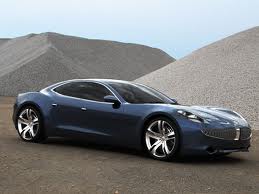In his July 2012 newsletter, TechCast editor Chad Davis
(2012) repeated what entrepreneur Elon Musk said about the state of electric
cars 20 years into the future in that “more than half of new cars manufactured
will be fully electric”. He continued with “I feel actually quite safe in that
bet. That's a bet I will put money on." And he quickly added, "It's
probably going to be in the 12- to 15-year time frame." In addition to
what the naysayers spoke of, Davis (2012) added a Pike Research predictive report
that appeared to suggest that it would be closer to a third of all the cars
built by the year 2032. The TechCast experts on the subject agrees with Musk’s
forecast in spite his acknowledgement that the current state of battery
technology is hindering factor.
Have we been here before? Does the forecast ring of
familiarity? Mark Twain was famous for remarking about historic recurrence in that
"History does not repeat itself, but it does rhyme". Thankfully,
Jonathan Katz of Industry Week recalls when the electric car first attempted penetration
into the mainstream market…back in 1974. More important, he remembers the
forces of the day driving the innovation. As he recalled, the energy market crisis and
governmental pollution compliance deadlines were the impetus for electric vehicle (EV)
innovations much like today. He noted that the same concerns about the
technology then hold true today. James Overbeke, editor with Industry Week in1974 wrote in an article on the subject of electric cars that "The best
available can rarely go 100 miles at 50 mph". "Also, they require 5-
to 7-hour periods on the recharger”.

It’s 40 years later with today’s electric vehicle state rhyming with 1974 complete with an energy crisis of sorts and environmental protection enforcement by the federal government - similar and powerful forces. So, what's different this time that makes history rhyme instead of repeat. Market forces (energy and govenment) then did not include the individual consumer. In 1974, the EV market became narrowly focused toward delivery vehicles, buses, taxis, garbage trucks. What about the average passenger car? Wisdom of the day warned that overemphasis of electric passenger cars could tend to waste developmental funds. Moreover, designers of electric vehicles would not produce anything new. Fast forward 40 years and market forces rely almost solely on the consumer demand for passenger vehicles. Only the technical and financial forces mirror each other during both times. Battery technology was a problem in 1974 and remains a problem today. Cost for the purchaser was a problem and unfortunately remains a problem today.

It’s 40 years later with today’s electric vehicle state rhyming with 1974 complete with an energy crisis of sorts and environmental protection enforcement by the federal government - similar and powerful forces. So, what's different this time that makes history rhyme instead of repeat. Market forces (energy and govenment) then did not include the individual consumer. In 1974, the EV market became narrowly focused toward delivery vehicles, buses, taxis, garbage trucks. What about the average passenger car? Wisdom of the day warned that overemphasis of electric passenger cars could tend to waste developmental funds. Moreover, designers of electric vehicles would not produce anything new. Fast forward 40 years and market forces rely almost solely on the consumer demand for passenger vehicles. Only the technical and financial forces mirror each other during both times. Battery technology was a problem in 1974 and remains a problem today. Cost for the purchaser was a problem and unfortunately remains a problem today.
On the whole, I’d say Samuel Clemens would espouse in a most colorful fashion through his famous pen character how accurate his quote was. Still, let’s not lose sight of the forecast about the technology itself. Given the 40 years since the reboot of the electric vehicle and the rhyming characteristics of the past versus the future, I’d hedge my bets that 20 years is rather optimistic on the part of Mr. Musk and the TechCast experts. And there’s one more unexpected force that has had a bigger impact on the fate of the EV than any other – innovation itself in the form of hybrid and still more efficient fossil-fueled vehicles. Unless we forget, the EV has been around for more than 100 years. Perhaps a 40 year cycle doesn't look so bad after all.
References
Davis, D. (July
2012). Elon Musk: 50% of New Cars Will Be Electric in 20 Years. Retrieved August
24, 2012 from http://www.techcast.org/Commentary.aspx?ID=298
Katz, J. (May
2012). The Electric-Car Craze Takes Hold -- in 1974. Retrieved August 24, 2012
from http://www.industryweek.com/global-economy/electric-car-craze-takes-hold-1974.
Overbeke, J.
(June 1974). Electric Vehicle Industry Sounds a “Charge”. Retrieved August 25,
2012 from http://www.industryweek.com/site-files/industryweek.com/files/archive/industryweek.com/images/misc/-Electric-Vehicle-Industry-Sounds-a-Charge.pdf





Comments (0)
Post a Comment